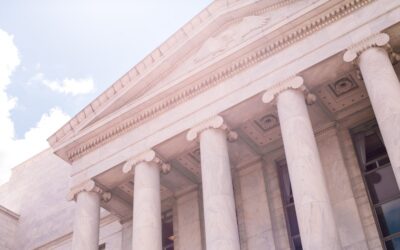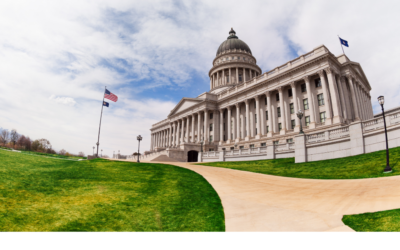Why tackle tax reform?
With all the attention the past few weeks on tax reform – legislature passes reform, citizens gather enough signatures to put it to a vote of the people, legislature announces intent to repeal the reform – it may be interesting to see what motivates legislators to consider big issues like tax reform.
A wide variety of bills for consideration
Any legislator can run a bill.
They are all elected by their constituents and nothing is off limits to propose. These bills or proposed changes to the law come from many sources. Personal experiences, constituents, lobbyists, laws in other states, media stories, etc. can motivate a legislator to run a bill. That is why you will see odd topics come up in the media.
Nothing is off limits.
A few years ago, a legislator proposed allowing the public to kill feral animals. One legislator told a story of one of his constituents who, when scratched by a feral cat flung it against a wall. A Sheriff’s Deputy witnessed the event and there was discussion about charging him with a felony. So it seemed as if a change to the law might be needed. A firestorm of media attention ensued.
Representative Oda even got 15 minutes of fame across national news platforms.
In the end, the bill died.
It’s a good example of how what makes perfect sense to a legislator can miss the mark.
The Sales Tax Predicament
In the case of tax reform, respected economists and others who analyze Utah’s State budget came to legislative leaders flagging a concern that over time would cause problems.
Sales tax growth was not keeping up with income tax growth.
The economists showed how, over a period of time, the slice of sales tax pie had been eaten up by online sales growth (with almost no taxes collected from it) reducing the state portion of sales tax on unprepared food. They also noted a shift from a product-based economy to a more service-based economy.
This problem was exacerbated by a Utah Constitutional mandate that all income tax go to education. Property tax is a local tax used by education, cities and counties. While there are user fees and other taxes imposed by the State, those pale by comparison with the impact of sales tax.
Without any changes, these tax trends put all services, other than education, provided by the State of Utah in jeopardy.
In recent years, Utah has grown by about 52,000 people per year. We have the fastest job growth in the nation and some of the lowest unemployment in the country. At those rates, social and community needs continue to grow and the revenue to fund those needs isn’t growing at a level that keeps up with growth and inflation.
It isn’t a budget problem. Utah continues to have yearly surpluses. It is a sales tax problem. It’s a particular pot of revenue, not the overall revenue.
Economists have the luxury of pointing out problems without the responsibility to solve the problems.
That duty lies with The Utah State Legislature.
The Legislature tackles tax reform
To their credit, legislators do hard things. More than any other elected officials, I find legislators are willing to do hard things now so that future generations don’t have to make even harder decisions.
To compare, take a look at the federal level to federal debt and continued deficit spending. We are heading towards bankruptcy as a country and it seems as if nobody is willing to make hard choices to get spending under control.
The Utah State Legislature doesn’t do that.
They balance their budget every year. They are constantly looking for problems in the future and solving them today. That is something I love about these good men and women. Regardless of political consequences, they try to do what is best for Utah.
In good faith, the state legislature began to look at how to solve the state’s sales tax problem.
Their first attempt during last year’s legislative session was met with skepticism and opposition. They went back to the drawing board. They formed a task force that held meetings throughout the state. They asked for citizen input. They began building a new plan based, in part, on that citizen input, keeping in mind they needed more sales tax revenue and not as much income tax revenue.
10 major points in the proposed tax reform bill
What they arrived at a December special session for a $160 million net tax decrease to Utah taxpayers was basically the following:
1. Reduce income tax rates from 4.95% to 4.66%. Everyone getting a paycheck would benefit.
2. Reinstitute dependent child exemptions. The Trump tax plan of 2017 eliminated much of the tax advantage of having children. This would help large families.
3. Reinstitute the state portion of sales tax on food to pre 2007 levels. This huge piece of the sales tax pie would be put back in the pie.
4. Grant a generous earned income tax credit for low income households. This would offset the increase in their grocery bills.
5. Provide grocery sales tax rebates. This would offset an increase in grocery bills.
6. Eliminate the state tax on social security. Senior citizens benefitted.
7. Impose a sales tax on gasoline. The cost of building and maintaining roads is increasing. The fiscal base to fund those improvements is eroding due to increased use of alternative fuel vehicles and more fuel efficient vehicles.
8. Establish sales tax on a handful of services. This begins to address the shift from a product based economy to a service based economy.
9. Repeal of a handful of sales tax exemptions. Tax exemptions are reviewed on a regular basis to see which benefit the state and which don’t.
10. Introduce a motor vehicle rental tax increase. This is a tax increase mostly on visitors to Utah.
Citizen response and the future of tax reform
Activists on the right and left of the political spectrum mobilized to get the tax reform bill on the ballot for possible repeal. They gathered about 160,000 signatures in more than enough counties in six weeks, and it is likely they have met the threshold for ballot placement.
Legislative leadership responded by committing to repeal the tax reform in the early days of the current legislative session.
So, we are back to square one.
There is still a problem.
The Utah State Legislature is still committed to finding a solution.
Stay tuned for further discussion on how to solve this problem.



